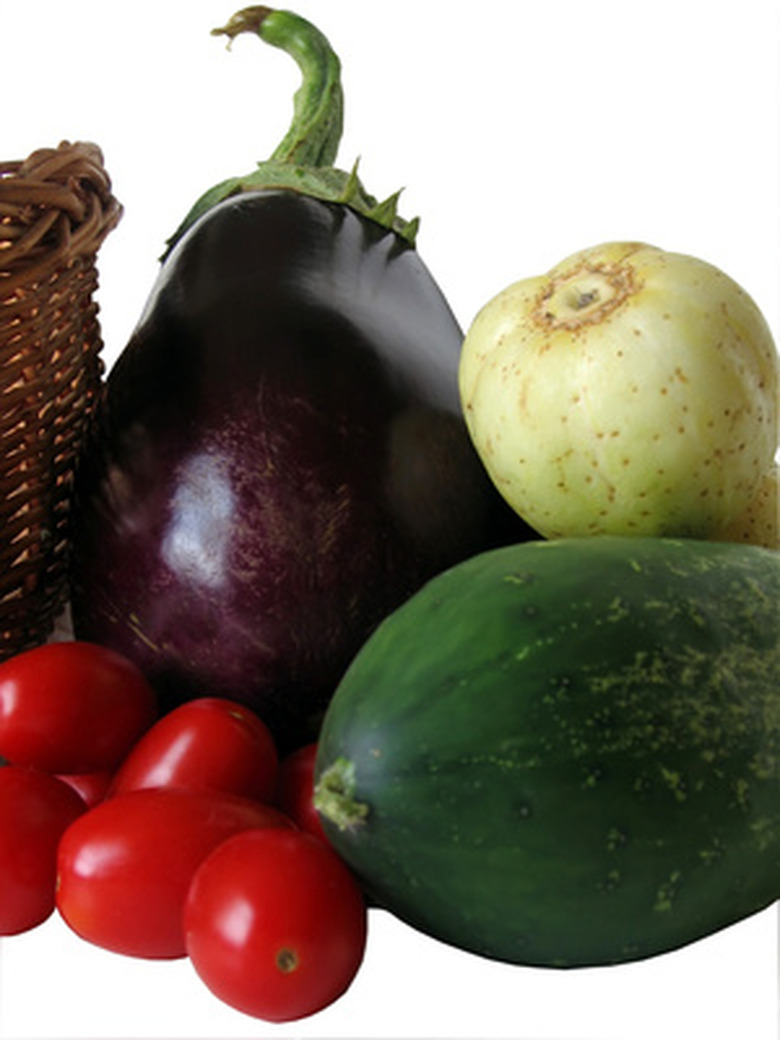What Vegetables Grow Well In Denver Colorado?
Denver, Colorado, at an altitude of approximately one mile above sea level, enjoys hot summer days and cool nights. The average growing season is Denver is approximately 115 days, according to the Colorado State University Extension Service, but gardeners must be prepared for unseasonable cool spells. Summers may be dry or wet, and late summer hail storms can reduce crops to shreds. Short season vegetables that prefer cool nights do best in Denver's climate.
Cruciferous Vegetables
Broccoli, cauliflower and brussels sprouts flourish in the warm days and cool nights of Denver's growing season. Plant seeds as soon as the ground has thawed enough to work, as early as the last week in April, or transplant seedlings once the danger of hard frost is passed. The last frost date in Denver is usually May 10.
- Denver, Colorado, at an altitude of approximately one mile above sea level, enjoys hot summer days and cool nights.
- The average growing season is Denver is approximately 115 days, according to the Colorado State University Extension Service, but gardeners must be prepared for unseasonable cool spells.
Greens
Lettuce, spinach, chard, mustard and collard greens can also be planted as soon as the ground can be worked. These plants may cease producing during the hottest months of summer, but you can sow a second crop in August for harvest up until the first snows.
Potatoes
Warm days and cool nights make Colorado one of the chief potato producers in the United States. Plant potatoes after May 10, once the soil has warmed to a minimum of 45 degrees. You can plant in hills in the garden or in wire cages, adding a mixture of topsoil, compost and straw every few weeks, up to the top of any new growth. Harvest in late summer or early fall, before the first hard freeze.
Tomatoes
Denver gardeners have the best success with tomatoes if they start the plants indoors or purchase seedlings from greenhouses. Protect the plants from any early cold spells. Some gardeners insulate the plants by surrounding them with dark-colored jugs of water. For best results choose early-bearing varieties such as Big Boy and Good-n-Early. Once night begin to cool off, tomatoes may fail to set fruit. Late summer hail storms may be the biggest threat to tomatoes. Planting tomatoes in pots that can be moved inside a garage of under the eaves when storms threaten may help protect tomatoes from damage.
- Lettuce, spinach, chard, mustard and collard greens can also be planted as soon as the ground can be worked.
- Planting tomatoes in pots that can be moved inside a garage of under the eaves when storms threaten may help protect tomatoes from damage.
Beans and Peas
Green bean, fava beans, sugar snap peas and garden peas all grow well in Denver. Plant peas in early spring. They may take a couple of weeks to germinate in cool soil. Plant beans when all danger of frost has passed.
Carrots
Plant carrots in well-cultivated soil free of rocks and clumps. Carrots can take up to two weeks to germinate, especially during cool springs. Plant in early spring once danger of frost is passed. Harvest when carrots are the size of your thumb or larger, and harvest them all after the first frost.
- Green bean, fava beans, sugar snap peas and garden peas all grow well in Denver.
- Plant carrots in well-cultivated soil free of rocks and clumps.
